President Aoun urges independent school leaders to follow Northeastern and integrate classroom and experiential learning in AI-driven world
“The integration is key,” said Aoun, author of “Robot-Proof: Higher Education in the Age of Artificial Intelligence,” which lays out the blueprint for colleges to meet the challenges and opportunities associated with AI.
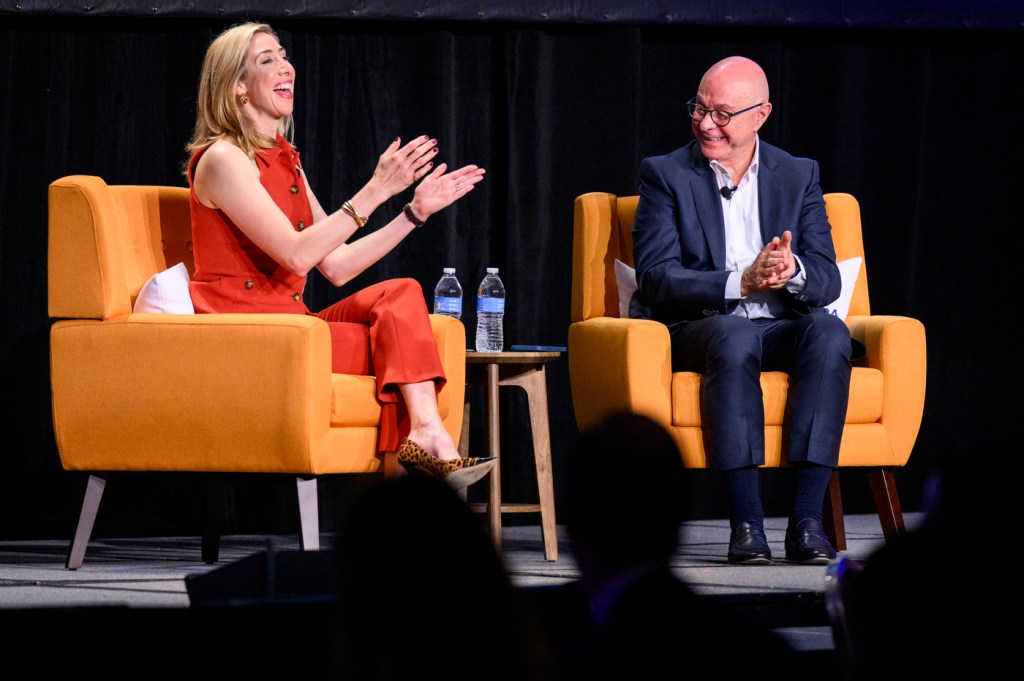
Northeastern University President Joseph E. Aoun told independent school leaders on Thursday that integrating classroom instruction and professional experience is crucial to preparing the next generation of college students — particularly in a world of artificial intelligence and changing demographics and expectations in higher education.
“You don’t want to create a situation where you have classroom instruction, and then you have the experiential learning that’s happening, and not bring them together,” Aoun said during his keynote speech before a crowd of over 1,500 at the Enrollment Management Association’s annual conference at the Sheraton Boston Hotel.
Aoun explained that experiential learning both reinforces and questions classroom learning, while also allowing students to understand their strengths and weaknesses, their peers’ skills, and the opportunities available.
“The integration is key,” said Aoun, Northeastern’s president since 2006 and author of the book “Robot-Proof: Higher Education in the Age of Artificial Intelligence,” which lays out the blueprint for colleges and universities to meet the challenges and opportunities associated with AI.
In his book, and in his speech Thursday, Aoun discussed a new discipline he calls “humanics” — the integration of technological literacy, data literacy and human literacy — with human professionals working alongside smart machines.
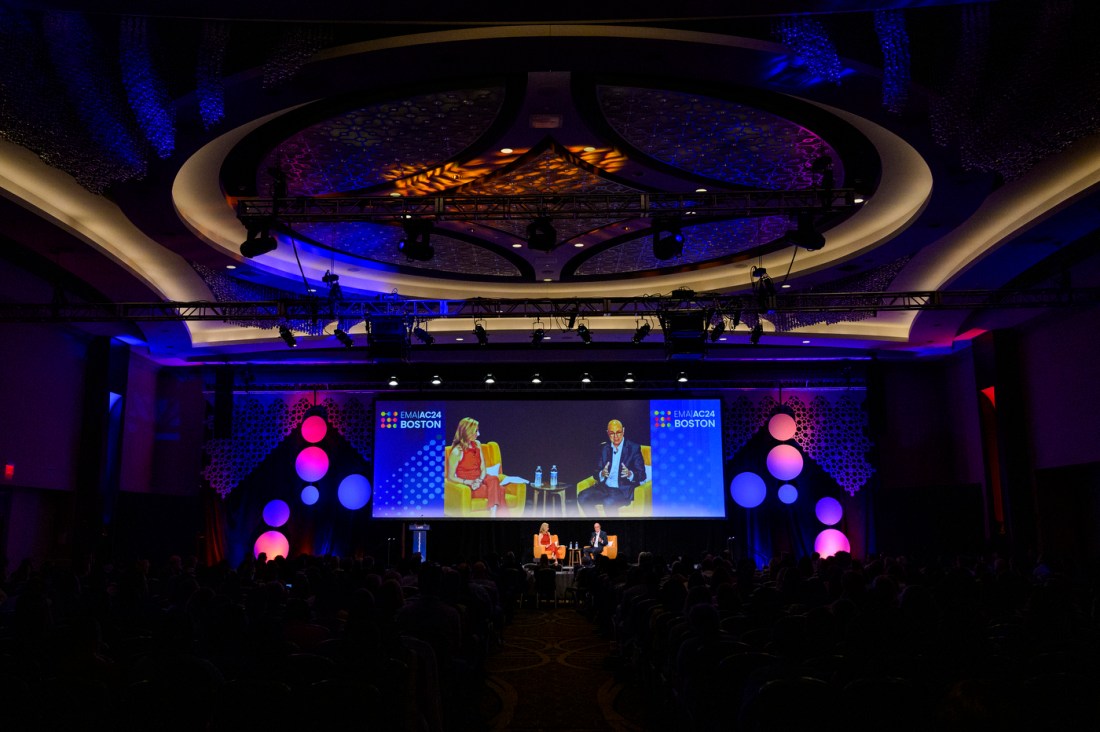
The Enrollment Management Association partners with independent schools across the world to help meet the admission assessment and enrollment needs of schools, students and families.
Aoun joined Claire Goldsmith, an education consultant and chair of the EMA Board of Trustees, for a fireside chat that covered topics from how to prepare students for college and lifelong learning in an age of machine learning, to how schools can address the upcoming demographic cliff of enrollment.
They also discussed the unique learning model that differentiates Northeastern — a global university with 13 campuses in three countries — from its peer institutions.
Throughout the discussion, Aoun emphasized that AI is “tremendously powerful,” but also has “enormous limitations.”
For instance, Aoun said human literacy — the ability to understand culture, context and nonverbal cues like body language and the transfer of knowledge — is as essential to education as understanding machines and data.
“Human literacy is what we do as humans that machines are not going to be able to duplicate for the foreseeable future,” he said.
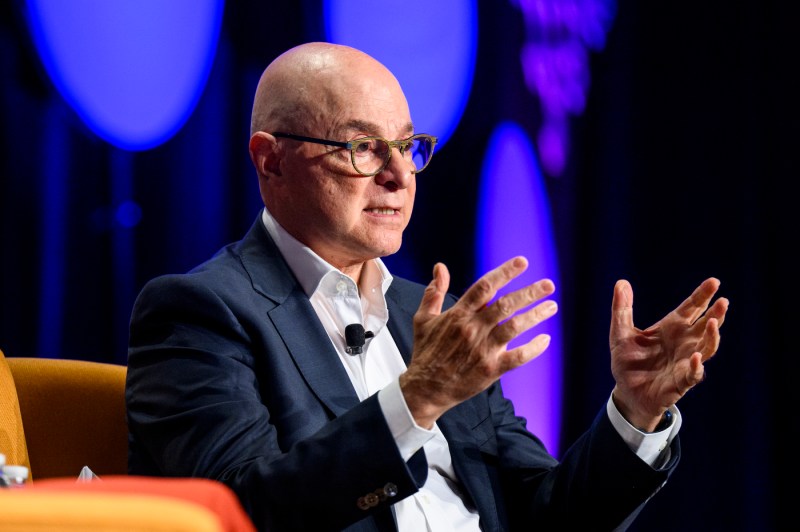
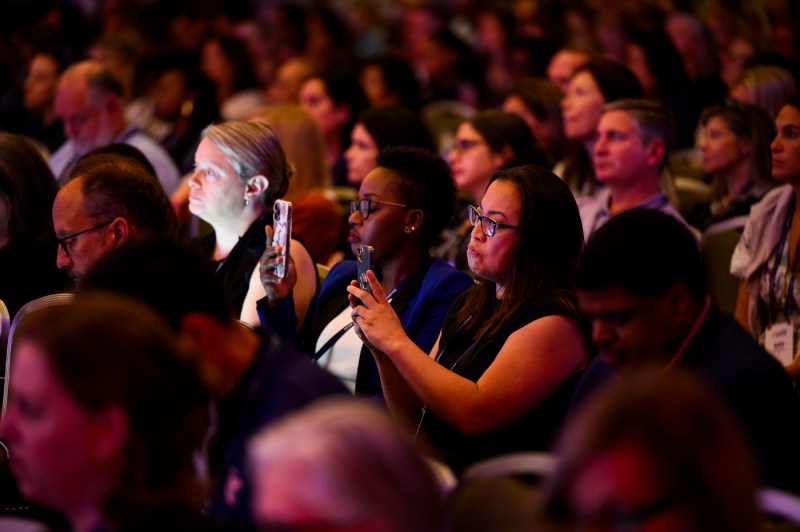
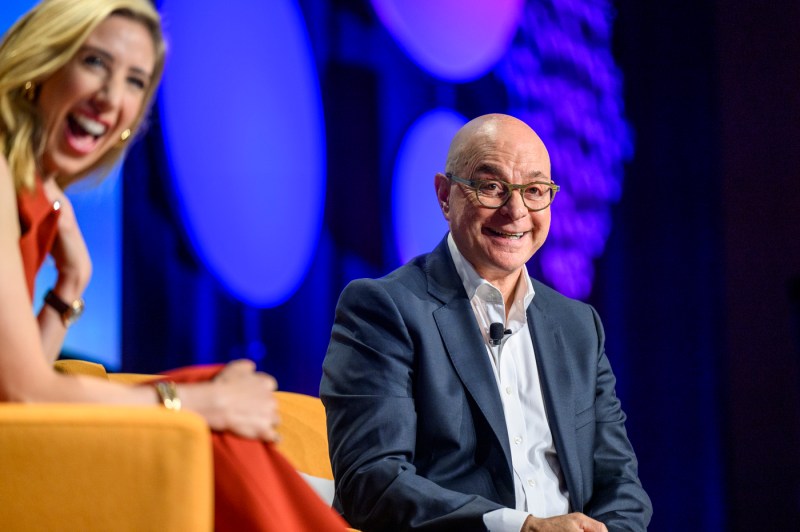
How do you teach human literacy, Aoun asked.
“Experiential education is going to be key in this respect, because it allows you to practice all of these avenues,” he said.
With 4,700 industry partners in nearly 150 countries on all seven continents, Northeastern has differentiated itself as the leader in experiential education, Aoun said.
Educators everywhere, he said, must embrace lifelong learning — the notion that people of any age, and throughout their professional careers, will need new skills and competencies to evolve with the times.
“We are global, we are experiential, we are driven by humans — this is what you can get at Northeastern,” Aoun said. “That gives us a point of differentiation with respect to other universities.”
That differentiation has been beneficial for Northeastern, which received a record 98,373 undergraduate applications and invested a record $470 million in financial aid this year, while welcoming a diverse first-year class that includes students from all 50 states and more than 100 countries.
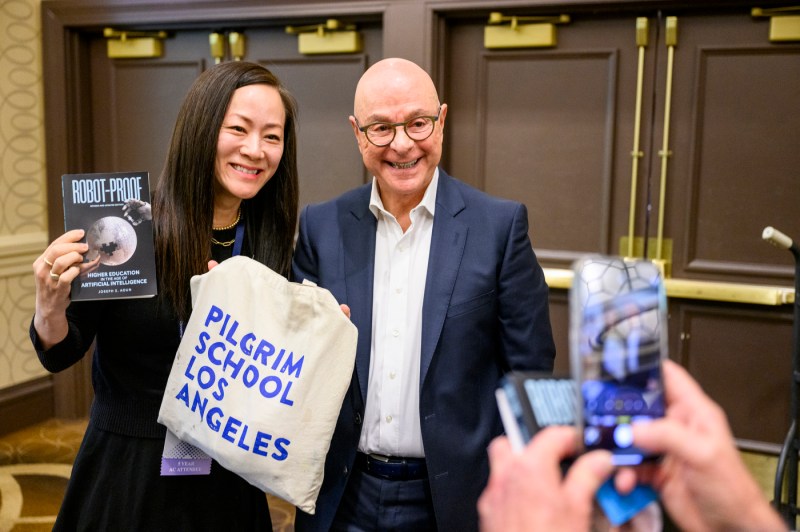
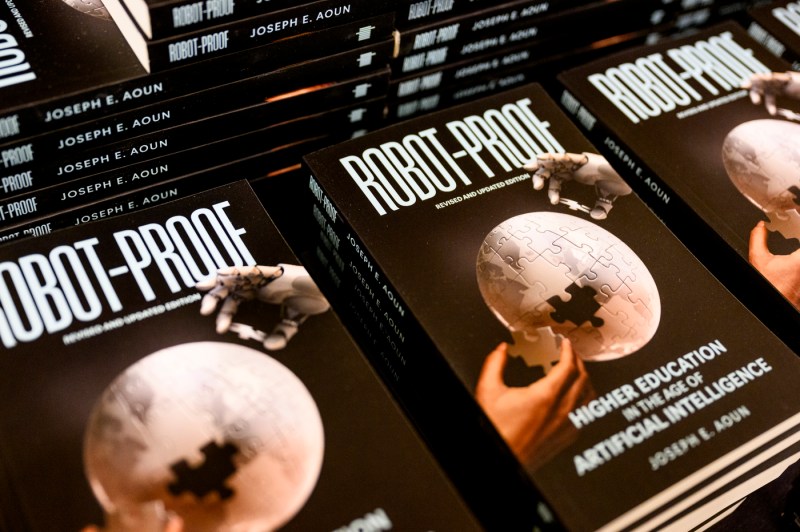
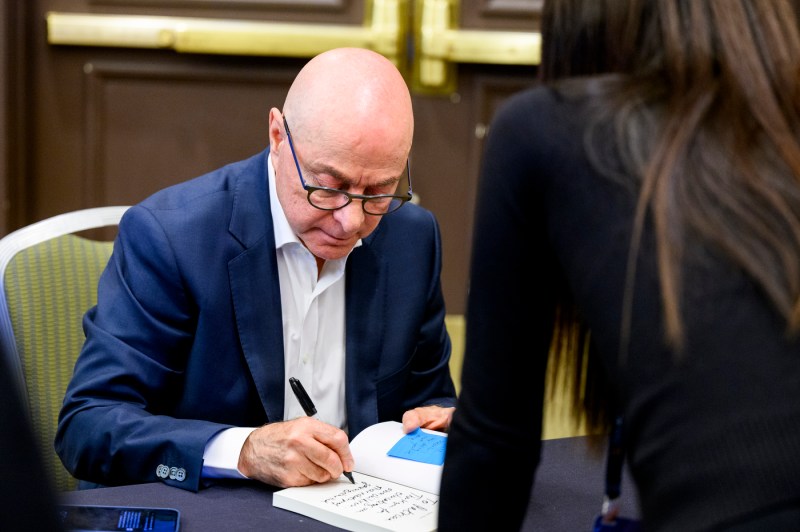
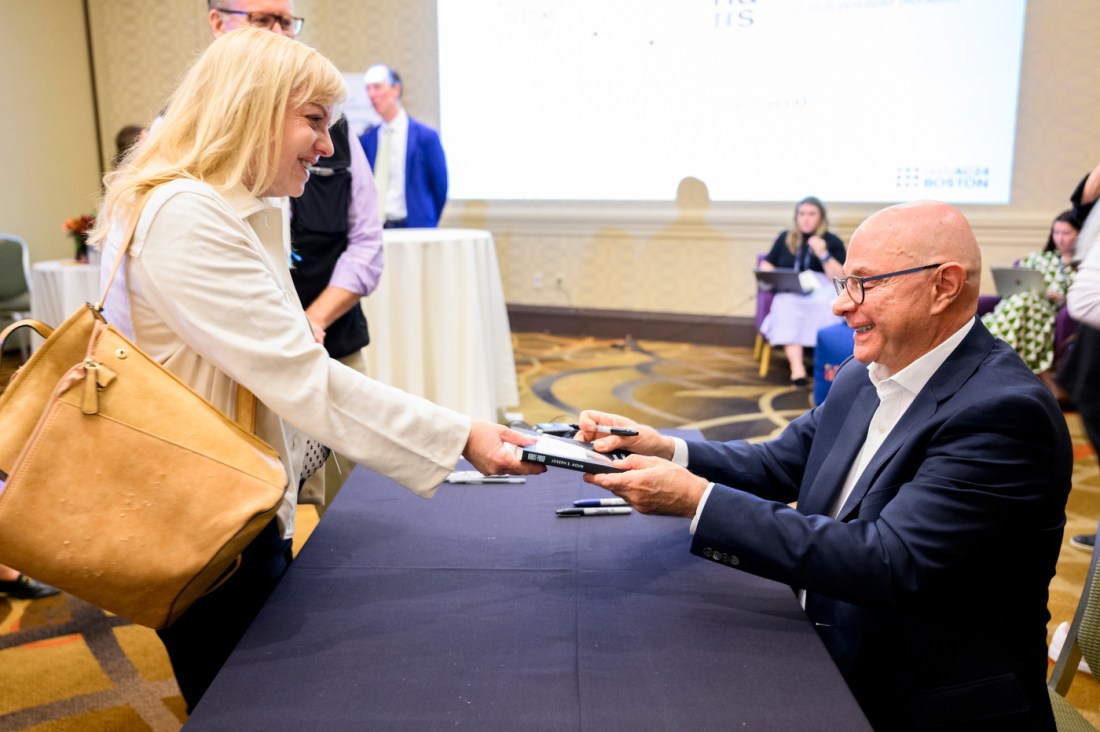
It also differentiates future Northeastern students — something of interest to the audience of independent school educators focused on enrollment.
“As you all know, the value of going to school is not to have knowledge only, but to demonstrate these human literacies,” Aoun told the audience. “So do whatever you can to showcase that your students not only have the knowledge of math, physics, writing, etc. — but they can go beyond.”
And once again, integrating experiential learning is key.
“What you do beyond the classroom is going to be essential,’” Aoun said.





